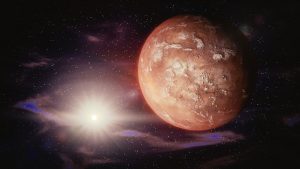 Being that Mars is nearly 34 million miles away from Earth, exploring the Red Planet is difficult to say the least. NASA has launched rovers to Mars, but each of these missions is an expensive and tedious project that requires years of planning. In fact, of the 56 Mars missions, only about half have been successful. Google and NASA, however, have teamed up to advance Mars research here on Earth.
Being that Mars is nearly 34 million miles away from Earth, exploring the Red Planet is difficult to say the least. NASA has launched rovers to Mars, but each of these missions is an expensive and tedious project that requires years of planning. In fact, of the 56 Mars missions, only about half have been successful. Google and NASA, however, have teamed up to advance Mars research here on Earth.
In a press release, the SETI Institute and the Mars Institute explained that they, along with Google and NASA, are exploring Devon Island to further advance Mars research for the Haughton-Mars Project (HMP). Located in Northern Canada, Devon Island is the largest uninhibited in the world. The only people on the island include researchers for the HMP project, and even these inhabitants are only temporary. So, why is NASA and Google interested in Devon Island?
Aside from being the largest uninhabited island in the world, Devon Island has a truly unique landscape resembling that of the Red Planet. It’s so similar that it’s been dubbed “Mars on Earth” among researchers. As a result, it’s become a prime location for studying and researching the Red Planet. Researchers can simply visit the Canadian island to gather insight into the geography of Mars. While it obviously doesn’t offer the same scientific value as a trip to the Red Planet itself, researchers say studying Devon Island has helped to increase their understanding of Mars.
In addition to its Mars-like geography, Devon Island is home to the Haughton impact crater. Some 39 million years ago, a massive object measuring about 1.2 miles in diameter crashed into Devon Island, leaving behind a 14-mile crater. Known as the Haughton impact crater, it resembles many craters found on Mars. And because of its similarities to Mars craters, the Haughton impact crater is a key focal point of NASA and Google researchers.
“We are excited about this new partnership with Google on the Haughton-Mars Project and about the data products being released. They allow us to share with the world some of the Mars-like wonders of the site and the fieldwork that we do,” says Dr. Pascal Lee, planetary scientist with the Mars Institute and the SETI Institute.
Last year, Google sent a team to Devon Island to collect Street View images for Google Earth and Google Maps. Using this data, the search engine company designed a guided tour showing the similarities of Devon Island and Mars.
You can check out the Devon Island Google Maps tour created by Google by clicking here.



